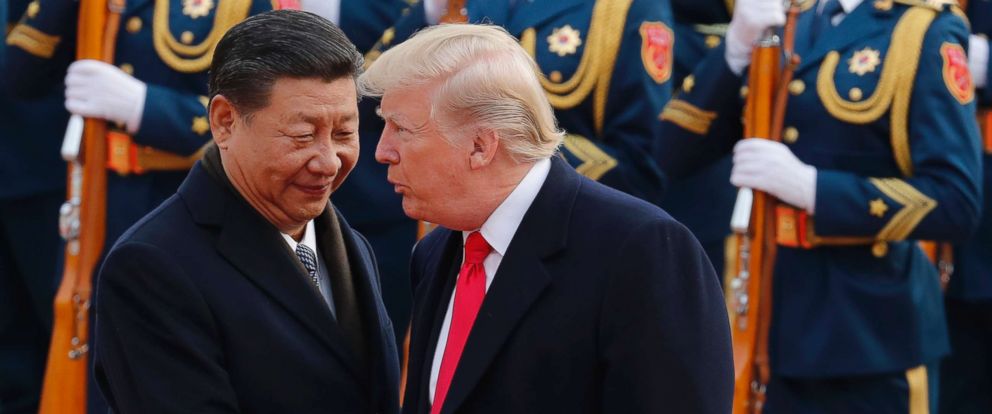Editor’s note: This is a positive development.
WASHINGTON—President Trump has named U.S. Trade Representative Robert Lighthizer, a hard-liner on China, to head trade negotiations with Beijing following a weekend summitwith Chinese President Xi Jinping, people familiar with the decision said.
[ Bob Davis and Vivian Salama | December 3, 2018 | WSJ]
The president informed Mr. Xi of his decision at their Saturday meeting in Buenos Aires, the people said, surprising the Chinese, who have mainly dealt with Treasury Secretary Steven Mnuchin. Beijing had maneuvered for months to deal with Mr. Mnuchin, who is close to financial markets and has been trying to pursue a settlement.
Mr. Lighthizer, on the other hand, has been pressing for more tariffs on China as a way to build leverage over Beijing and has focused on fundamental issues dividing the two nations, such as U.S. allegations that Beijing pressures U.S. companies to turn over technology to Chinese firms and fails to protect U.S. intellectual property.
The two men have clashed over the best way to deal with Beijing. In sessions in Washington and Beijing, Mr. Mnuchin has previously taken the lead.
The U.S. side has been torn for months over the best way to approach Beijing. At the Saturday meeting, Mr. Trump agreed to suspend a planned increase in tariffs on $200 billion in Chinese goods to 25%, as the two sides negotiate for about three months over fundamental Chinese economic policies.
Selecting Mr. Lighthizer, the people familiar with the decision said, gave Mr. Trump more confidence that the U.S. would pursue a hard line with Beijing. Mr. Lighthizer and his staff also have put together the case against Beijing that led to tariffs, in line with U.S. trade law, and are experienced trade negotiators. In similar talks with the European Union and Japan, Mr. Lighthizer also took the lead role.
“The decision sets talks in a whole new direction,” said Hudson Institute China scholar Michael Pillsbury, whom Mr. Trump has said he regards as one of the top China experts and who consults regularly with the White House. Mr. Trump “steered the discussion into legal negotiations for which [the U.S. Trade Representative] will want signed documents that will commit China to a course of action as opposed to informal negotiations” as Treasury had pursued, Mr. Pillsbury said.
Jared Kushner, a White House adviser and Mr. Trump’s son-in-law, played an important role in persuading the president to go ahead with the Lighthizer appointment, said the people familiar with the decision.
During talks in Buenos Aires on the U.S. side, National Security Council Asia chief Matt Pottinger also played a significant role, the people said. He urged the president to pursue more than trade issues, including North Korea, Chinese exports of fentanyl, a highly addictive opioid that has ravaged white rural areas that voted heavily for Mr. Trump, they said. In Buenos Aires, Mr. Xi pledged a crackdown.
Also important to Mr. Trump was a Chinese pledge to buy more soybeans and other agricultural goods.
Precisely how the next round of negotiations with China will kick off isn’t yet set. Chinese Vice Premier Liu He, who has been China’s main negotiator with the U.S., is considering leading a 30-member delegation to Washington in the coming weeks, according to people familiar with the matter.
It is also unclear how Mr. Lighthizer will arrange the U.S. side. Treasury traditionally handles financial-sector issues in trade talks. During this past year, the Treasury undersecretary, David Malpass, has led a group that included officials from the trade representative, Commerce Department and other agencies. He has also pressed Beijing to increase exports of U.S. goods.
Mr. Trump said Monday that U.S.-China relations have taken a “big leap forward,” and pledged his love to the American farmers who he said would be the “big and fast beneficiary” of renewed talks.
“My meeting in Argentina with President Xi of China was an extraordinary one,” the president tweeted. “Relations with China have taken a BIG leap forward! Very good things will happen. We are dealing from great strength, but China likewise has much to gain if and when a deal is completed. Level the field!”
Mr. Trump’s remark appeared to echo the slogan of Chinese Communist leader Mao Zedong’s Great Leap Forward economic program of the late 1950s and early 1960s, a campaign to collectivize agriculture and industrial production and catch up with the West. It resulted in widespread famine and the deaths of tens of millions of Chinese.
The White House didn’t immediately respond to a request for clarification of Mr. Trump’s comment.
After a weekend dinner between Messrs. Trump and Xi at a Group of 20 summit in Argentina, the U.S. postponed its threat to increase tariffs on $200 billion in Chinese goods to 25% from 10%. But it set a timeline of only about three months for the two sides to negotiate several issues that have proved largely intractable in the past.
Speaking to reporters outside the White House late Monday morning, Mr. Trump’s top economic adviser, Lawrence Kudlow, described Mr. Lighthizer as “a fabulous negotiator” who will be “deeply involved” in the talks, but said the details on the negotiations have yet to be finalized.
“I believe Ambassador Lighthizer is going to be in charge of, shall we say, enforcement and monitoring and timetables,” he said, but noted that the president is ultimately the chief negotiator.
Mr. Kudlow added that he, Mr. Mnuchin and other senior administration officials will also be advising the president as talks progress.













